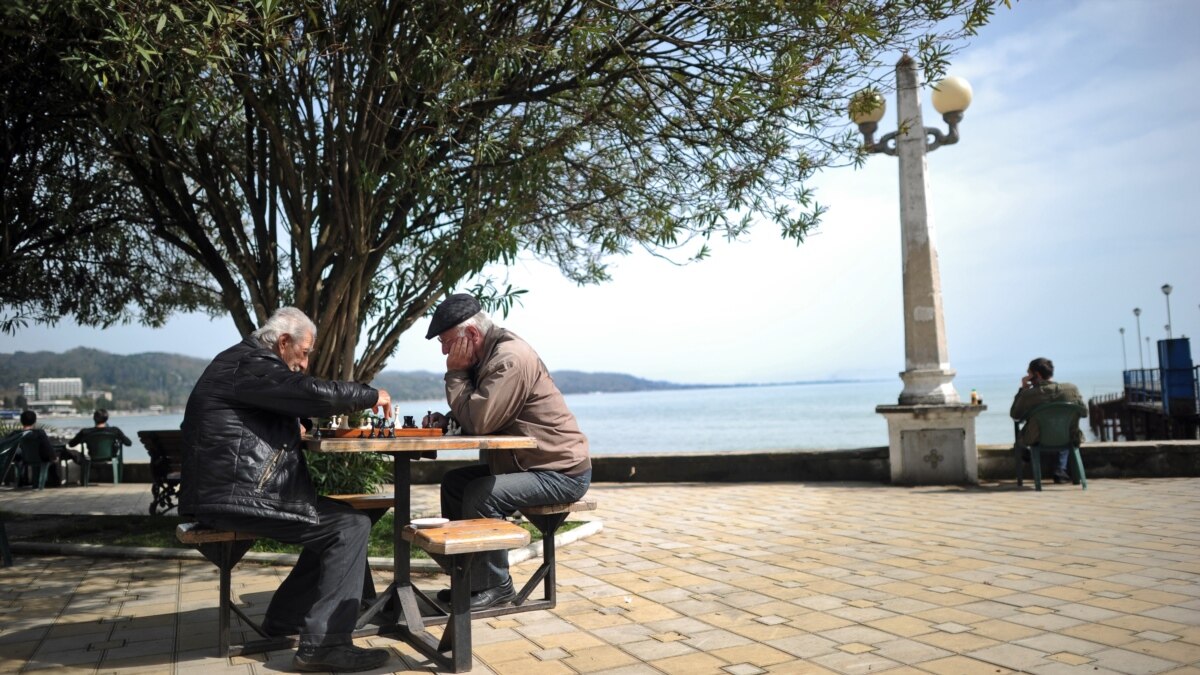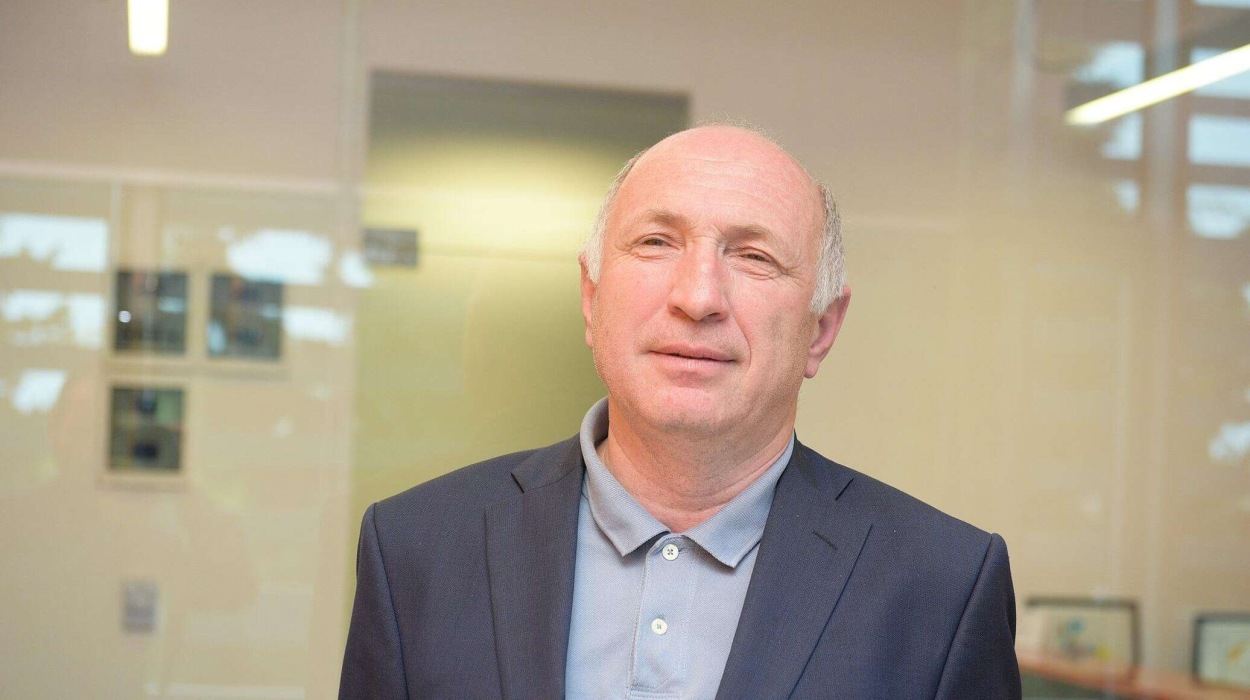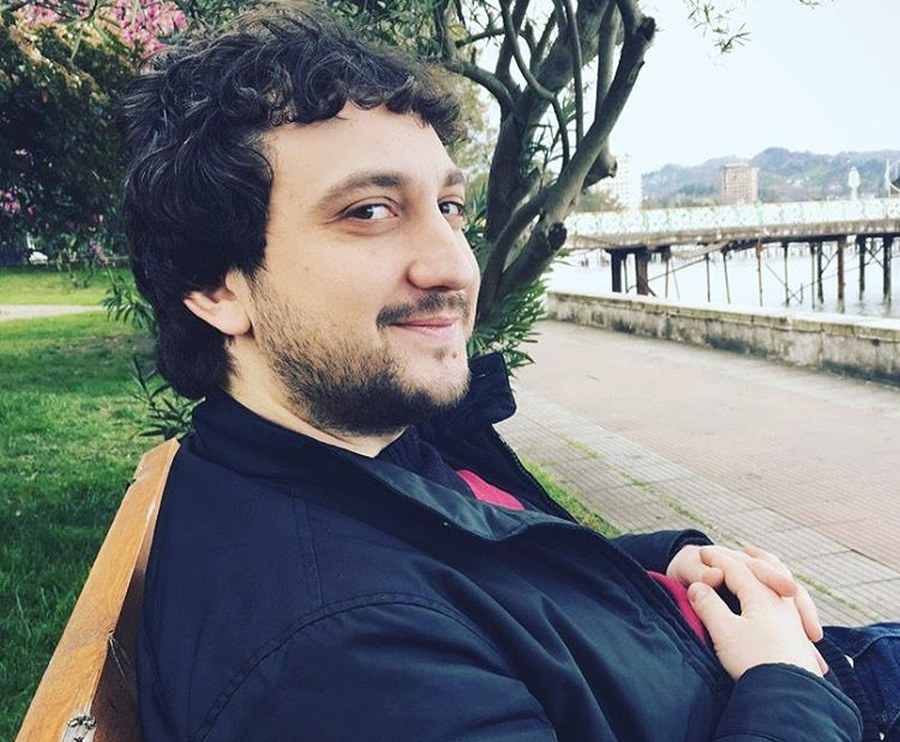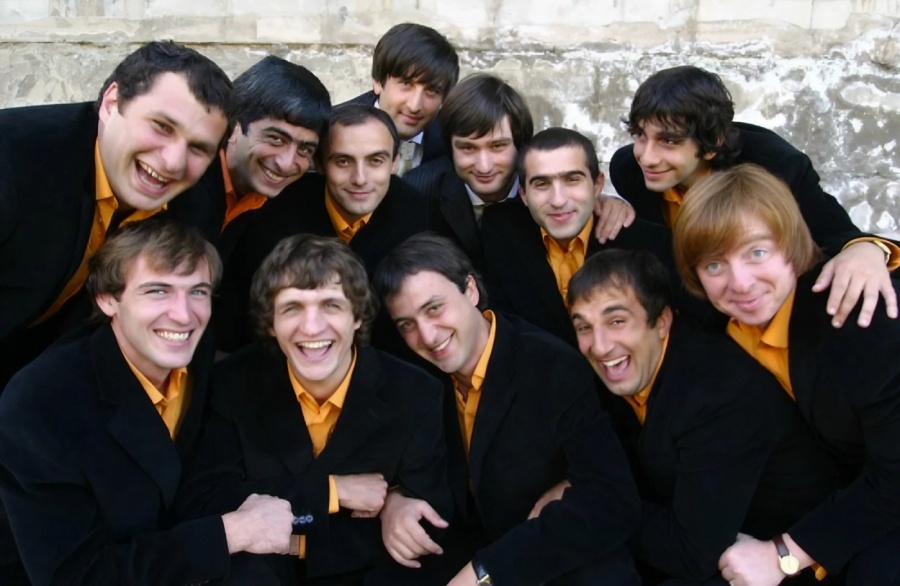"We, Abkhazians, know how to make fun of our way of life"

Sukhum poll - for April Fool's Day, by Anaid Gogoryan (Ekho Kavkaza)
– What distinguishes Abkhazian humour, what is its peculiarity and colour?
Eleonora: I think that Abkhazians know how to joke about themselves. Maybe that's what distinguishes their humour.

Sukhum, Abkhazia
– Tell us a funny joke or your favourite anecdote.
Eleonora: I remember an anecdote, a post-war anecdote. It was a turbulent time in all post-Soviet countries. The President of Russia comes to God and asks: "When will peace, prosperity, etc. come to my country?" God named a specific time of the year when everything the president wishes will come true. Next in line, the President of Georgia comes to him and asks the same question. God replies again: "In such and such year, order, peace, etc. will come to your country." Then the Abkhazian president comes in and says: "Lord, please tell me, when will order, peace, etc. come to my country?" And God answers: "Will I even live to see that?" It wasn't so much about when peace would come; the question was, "When will the chaos in my country end?" This is usually what concerned people in post-war Abkhazia, and even now. But in Abkhazian, it's hilarious. "Will I even live to see that?" Only people who can joke about themselves could come up with such an anecdote.
Vladimir Zantaria, writer, scientist, academician: I, of course, really appreciate Abkhazian humour; it's simple and very accessible. For example, I am very fond of the amusing stories related to our writers. They were able, by the way, to kindly joke with each other. Even before, during Soviet times, Abkhazian writers often gathered at Brekhalovka. Taif Adzhba, Raul Lasuria, Aleksei Gogua, and many others were often there. And it was precisely during coffee and tea breaks that they told each other these amusing stories. Fazil Iskander was often there as well.

Vladimir Zantaria
When I got married, I was urgently informed that I was invited to the village of Mgudzyrkhua, not for a wedding, but to get acquainted with a new relative, that is, a son-in-law, in a small circle. I was shocked because I was invited unexpectedly and had to go immediately. I needed friends. According to Abkhazian traditions, you can't go alone; you need to take friends with you. But where to find them? So, the artist Valery Gamgia and I went to the promenade, where we saw the former First Secretary of the Regional Committee, Mikhail Bgazhba, Fazil Iskander, and Aleksei Gogua. They were sitting in a restaurant and were in a good mood. Seeing that I was nervous and couldn't say anything, they asked, "What's the matter? Maybe we can help?". That's how the story goes. And Fazil Iskander said, "If necessary, we'll go with you!". So it happened that Fazil Iskander and Aleksei Gogua (Mikhail Bgazhba couldn't go; he was elderly) accompanied me as the son-in-law's friends.
I wrote about this in the essay "Abkhazian Notebook", about how we were feasting there, how I was standing in the courtyard under a blooming cherry tree, waiting for the mamaliga (cornmeal porridge) to be served and the table to be set. But I got hungry unnoticed. I was standing there because, according to Abkhazian tradition, a young son-in-law mustn't sit down until he is given permission. But when we went inside and sat at the table, I immediately sat down. I forgot about all the rituals and customs. I was so hungry that I started eating right away. Suddenly, someone pinched me hard. I looked and saw Aleksei Gogua. I asked, "What happened?". He said, "Here you need to stand up, but there, where you were standing, no one noticed. Here you need to stand up". So I jumped up, and everyone noticed. It was an inability to observe tradition. The entire audience noticed. And Fazil Iskander paid great attention to it. "Aha, look at these customs and so on". He took note of it.
On the way back, all my friends, who had had a few drinks, returned after this mission. When we were going up the "mother-in-law's tongue," Fazil Iskander said to Aleksei Gogua, "Alesha, let's sing an Abkhazian song". You would think they were great singers. "Which one?" – asked Aleksei Gogua. For example, the song "Tsarsky Akambash" (buffalo). Nobody remembers this song except for Fazil. In Abkhazia, it is some kind of ritual song when a young girl experiences some kind of obsession or witchcraft. To drive out the evil spirit, they sing this song. How did Fazil Iskander remember this while being in Moscow? And they sang all the way to Sukhum about how the royal buffalo ate the flour. That's the plot of this song. So, there are quite a few such stories connected with my marriage.
Erik Mikaa, humourist: Abkhazian humour is specific, and first and foremost, as for any people, especially for small nations, I say this because it is very different from all the Caucasian variants of humour that are known on air and off-air in the post-Soviet space. These generations are still alive. What was interesting about Abkhazian humour when it first appeared on central Russian channels? The humour wasn't the most ingenious, but it was unique and straightforward, to put it simply. For example, we Abkhazians can beautifully and delicately joke about our way of life. In doing so, we highlight the social issues we face daily. But through the prism of light and kind humour. And what is humour, like cinema – it is a reflection, a certain prism of one angle of viewing and reflecting on life and the creation of society in general.

Erik Mikaa
Of course, there was Georgian humour, Dagestani humour, many others, Armenian radio, etc. But when Abkhazian humour appeared, so to speak, on the television arena, it became interesting because it was quite subtle and very specific. And very blitz-like, it was short. That is, you didn't need to delve deeply into serious, profound logic to reveal the essence of that joke or story, or whatever episode you wanted to tell. This relay was carried on by the younger generation. Of course, production and its presentation have changed somewhat, naturally, in the age of the internet. But the main feature, the main peculiarity, was precisely that no nationality, no people joked about themselves, their lives, their creations, and their mistakes to such an extent and at such a level.
What they do differently from everyone else. This is precisely the moment of individuality. And if you add a few drops of intellect and, so to speak, a good vocabulary in the generally accepted Russian language, you get quite interesting, attention-grabbing humor.
- In your opinion, what sets Abkhazian humour apart?
Mikhail Gaguliya, showman: All Caucasian humour is based on delivery; everyone has their different accents, a certain charisma, meaning you can even say unfunny things with such charisma and delivery that it will be funny for people. As for Abkhazian humour, it also has what I mentioned in the first place: our dialect is amusing. It has always been the case that even if you take an example, let's say, in the villages where adult men lived, they always teased each other. Abkhazian humour consists more of poking fun, not in an offensive sense, but to slightly bite, tease, remember what happened, and it was always funny. The person who teased another always received a teasing response. Mainly, Abkhazian humour is built on this.

Mikhail Gaguliya
- Can you give an example?
Mikhail Gaguliya, showman: In our humorous world, we talk about the ancient confrontation, let's say, between the Ochamchira side and the Gudauta side. They tease each other about whose mamaliga (cornmeal dish) is tastier. This is one example I gave. Or someone comes to the field in dress shoes, and they tell him, "You need to collect corn in the field." "Well, who knows, the neighbour might be there, see that I'm well-dressed."
How is today's humour different from the humour that was in Abkhazia 20-30 years ago?
Mikhail Gaguliya: I think that in our country there are topics that are still relevant to this day. Problems with electricity, problems with pensions, salaries. We always joked about them, and practically, every generation, whether they were 15-25-40 years old, all perceived it as funny. But of course, times are changing, and there is current humour. For example, if something is happening in the country now, humourists usually latch onto it and write some jokes. If before people wrote, they wanted drama, so that there was some kind of plot in the performance, now everything has become simple, trivial, because there is the internet. Excuse the slang, but street jokes, today you can see them not only in the yards, but they also sound across the internet, and everyone already knows them. In my opinion, humour has become simpler.

KVN team "Narts from Abkhazia"
- You have been in KVN (Club of the Funny and Inventive) for many years, tell us how popular is this game in Abkhazia?
Mikhail Gaguliya: KVN has always been popular, even since the time when the KVN team "Narts from Abkhazia" got on the First Channel and represented our country, and even a little earlier. There were people who started it, like Boris Sadjat-ipa and others, there were quite a few of them. KVN has always been liked and people always attended it with pleasure because humor and laughter prolong life. When you laugh at problems, it's easier to live, in my opinion. Always youth, not even youth, sometimes entire organizations like the Ministry of Emergency Situations would perform on stage, play, joke, and it was great. Now, unfortunately, I cannot tell you anything because this topic is not well supported. Maybe it's not interesting anymore, or maybe it is. Nevertheless, it's not currently active, but I hope it will revive in the near future. I want to wish all the listeners to smile more because there is such a difficult time in the country right now. And not just in the country, in the world. It seems to me that if we approach everything with a little humor, our problems will also decrease. Maybe not completely, but at least by some small percentage, they will be less, and from this, it will become easier. I was a member of the KVN team "Little Country", then I participated in various television projects on the TNT channel, a showman.